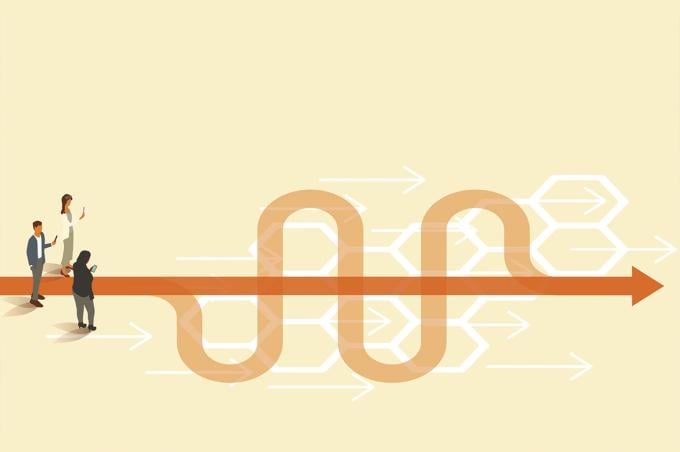Adverse childhood experiences such as emotional abuse or living with someone who has a substance-use disorder have been linked to multiple adverse health outcomes, including higher risk of depression and burnout.
That’s as true for physicians as it is for the general population.
Now researchers are shedding light on the impact of the adverse experiences that physicians have in practicing medicine, dubbed “adverse occupational experiences.” For example, having to provide care for patients with COVID-19 without adequate personal protective equipment (PPE). According to a study published in Mayo Clinic Proceedings, such experiences increased a physician’s risk of depression and burnout. And they are just as important as risk factors for depression and burnout as are adverse childhood experiences.
For the study, researchers examined the links between adverse childhood and occupational experiences with depression and burnout among 7,360 physicians from the AMA Physician Professional Data™ who responded to a survey in late 2020 and early 2021.
For mild to severe depression symptoms, survey responses were collected from physicians practicing in 20 different specialties. The highest rates of mild to severe depression symptoms occurred among these 10 physician specialties. They were:
- Urology: 38.5%.
- Emergency medicine: 38.3%.
- Family medicine: 35.8%.
- Obstetrics and gynecology: 33.6%.
- General internal medicine: 33.3%.
- Physical medicine and rehabilitation: 32.7%.
- Radiology: 32%.
- Pediatric subspecialty: 31.9%.
- Psychiatry: 31.8%.
- Dermatology: 31.6%.
Ophthalmology had the lowest rate of depression at 19.1%.
While physicians are at higher risk for burnout compared with workers in other fields, this does not indicate that doctors are at increased risk for depression
The fact that “adverse occupational experiences are also associated with increased risk for depression and burnout—may be the more unique finding because those were adverse occupational experiences specific to physicians,” said lead study author Mickey T. Trockel, MD, PhD, who is the director of evidence based innovation at Stanford Medicine WellMD Center. The article was co-written by Christine Sinsky, MD, Michael Tutty, PhD, and Lindsey E. Carlasare of the AMA, among others.
Dr. Trockel added that these adverse occupational experiences “were just as important as risk factors for depression and burnout as adverse childhood experiences,” noting “they are more common in physicians than adverse childhood experiences… which suggests that adverse occupational experiences may be the more important population level concern for physicians.”
Reducing physician burnout is a critical component of the AMA Recovery Plan for America’s Physicians.
Far too many American physicians experience burnout. That's why the AMA develops resources that prioritize well-being and highlight workflow changes so physicians can focus on what matters—patient care.
Adverse experiences’ lasting impact
Of the physicians surveyed, 24% had at least one adverse childhood experience, with a prevalence of emotional abuse that was no higher than that of professionals in other fields. Physicians also had a marginally lower prevalence of living with someone with a substance-use disorder.
For adverse occupational experiences, nearly 31% of physicians had provided care to patients with COVID-19 while not having adequate PPE and 39.6% faced disruptive economic consequences due to the pandemic. Of the physicians who responded to at least one of the two COVID-19 questions, 54.6% had at least one adverse occupational experience related to the pandemic. Less than 10% were named in a medical liability lawsuit in the past year, while 7.5% had made a medical error that resulted in patient harm.
Adverse childhood experiences, making a significant medical error, and COVID-19-related adverse occupational experiences all were associated with physician burnout. All adverse childhood and occupational experiences assessed were also associated with higher odds of mild to severe depression symptoms in physicians.
It is important to differentiate between physician burnout and depression. While burnout has often been misconstrued to be directly related to suicidal ideation, and burnout is a risk factor for depression, it is depression and not burnout that is a direct risk factor for suicidal ideation. Yet confusion about these critical distinctions remains, even among some physicians. Learn more in this Q&A with Dr. Sinsky, the AMA’s vice president of professional satisfaction.
Organizations’ next steps
Here are a few steps that Dr. Trockel said physician practices and health care organizations can take to address depression associated with adverse childhood or occupational experiences as part of their well-being initiatives.
Start screening for depression. “That’s the U.S. Preventive Services Task Force recommendation for all adults,” including physicians, Dr. Trockel said. While “burnout is more of a risk for physicians than workers in other fields … depression is different.
“Physicians have about the same level of depressive symptoms as the general population. Physicians are likely to benefit from the U.S. Preventive Services Task Force recommendation implementation as much as other populations,” he added.
Implement prevention efforts. “Screening for adverse occupational experiences and adverse childhood experiences would allow for selective primary prevention efforts,” Dr. Trockel said. “If organizations and their populations of physicians are willing to participate, screening for both could facilitate targeted delivery of intervention to physicians at higher than average risk before depression symptoms emerge.”




